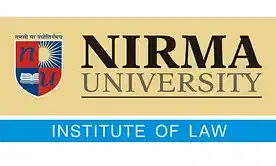Steps to attempt legal reasoning questions in CLAT 2025 starts with reading the passage carefully and identifying the principles. Students must pay attention to the small details to correctly answer the questions.
Table of Contents
How to Attempt Legal Reasoning Questions in CLAT 2025? Students should gain a better understanding of legal terminologies and phrases to expand their vocabulary to start .
Students should determine the degree of difficulty of the questions asked and the kinds of questions asked in the legal reasoning portion, try answering greater number of questions from the topic/sectional and take frequent mock exams.
The Legal Reasoning section is made up of chapters based on real-world experiences or fictitious incidents, each followed by a set of questions.
There will be both plain-spoken and legal reasoning-based questions. The simple questions will assess the student's ability to present the most compelling argument or conclusion regarding the legal matter covered in the passage.
Guide to Attempt Legal Reasoning Questions in CLAT 2025
Questions on legal comprehension included in the Legal Reasoning portion of CLAT 2025 pertaining to any static or current legal problem will be followed by five to six questions.
In order for the pupils to respond to such questions, they needed to have high, objective comprehension abilities.
The questions will focus on legal reasoning; that is, students will be presented with a hypothetical scenario and asked to make a decision based on the legal information they have read in the text.
Essential guidelines for attempting the legal reasoning questions are listed down below:
- Carefully Read the passage: To grasp the passage's ideas, start by giving it a thorough reading.
- Examine Each Question: Carefully read each question to ascertain whether the principles apply to the same facts (with or without modifications) or to a different set of facts that are stated in the paragraph.
- Examine "OR" and "AND" Conditions: When dissecting the theory, take careful note of any 'OR' and 'AND' conditions. Using the earlier example, you would have one 'AND' condition and one 'OR' condition.
- Identify and Dissect the Principle: After the principle and the facts have been determined, divide the principle into more manageable chunks.
Attempt Free: CLAT Mock Test 2025
Steps to Answer Legal Reasoning Questions in CLAT 2025
Student’s ability to apply legal concepts to a factual situation and the legal knowledge are tested in the Legal Reasoning part. The legal knowledge, research prowess, and problem-solving skills are evaluated in this section.
The step-by-step tips to solve the legal reasoning questions are added below:
Step 1: Students need to set aside a few hours every day, or every other day, to complete the legal reasoning component.
Step 2: Collect the necessary study materials.
Step 3: Set aside time for each topic and attempt to do all of the assignments in the allotted amount of time.
Step 4: Put the laborious subjects on the back burner and finish them up at the end of the day.
Step 5: Expand the legal vocabulary by learning legal expressions, maxims, and jargon.
Step 6: To gauge the level of difficulty and the kinds of questions asked in the legal reasoning part, try answering an increasing number of the topic/sectional questions and taking frequent mock exams.
Step 7: Read the passage, then the questions, then the options in that order.
Step 8: To increase the accuracy and speed, practise mock exams.
Also Read: How to Prepare for CLAT without Coaching?
Topics to Attempt Legal Reasoning Questions in CLAT 2025
The syllabus for Legal Reasoning includes the following topics:
- Intellectual Property Law
- Torts
- General Legal Principles
- Family Law
- Constitutional Law
- International Law
- Criminal Law
- Contracts
Recommended: Important Topics to Study from CLAT Syllabus 2025
Preparation Tips for Legal Reasoning Questions in CLAT 2025
- Prior to attempting the questions, always read the understanding. This will ensure that students don't read the hypothetical scenario first and develop preconceived notions that lead to biased marking of responses.
- When responding to the questions, bear in mind the author's view points and avoid conflating them with their own. Always select the choice with an apparent reference in the passage when deciding between the two correct options.
- Above all, make sure not to miss any of the practice exams or CLAT sample exams that are offered.
Read More: CLAT Previous Years Question Papers
CLAT Legal Reasoning Preparation Tips to Score 25+ Marks
The advanced tips that can make a student stand out of the crowd and easily score 25+ marks in Legal Reasoning sections are listed down below:
- Recognize the fundamentals of law.
- Acquire the ability to apply the facts to arguments and situations.
- Use shortcuts when possible, but try not to rely solely on them. Instead, examine them for information and fresh concepts.
- To succeed in this part, students must read quickly. Consequently, reading a lot is advised.
- To learn more about different legal perspectives, try reading law periodicals and current legal knowledge issues from different sources.
- Try posing an increasing number of queries based on the articles from prior years.
- Complete as many practice exams as students can to boost their self-assurance.
- Read the text word for word and line by line while underlining the keywords to get the most appropriate answer.
- Don't apply any additional knowledge while solving the passages.
Books for Legal Reasoning Questions in CLAT 2025
The best books to practise Legal Reasoning questions are tabulated below with the author's name:
| Book Title | Author |
| Complete CLAT Common Law Admission Test Companion | Harsh Gagrani and Karan Mehta |
| LA/LR Legal Awareness and Legal Reasoning | A.P. Bhardwaj |
| CLAT Entrance Exam Guide Paperback | LearnX |
| Legal Reasoning for CLAT, AILET, SALT & Other Law Entrance Exams with Previous Year Questions 3rd Edition | Disha Experts |

































POST YOUR COMMENT